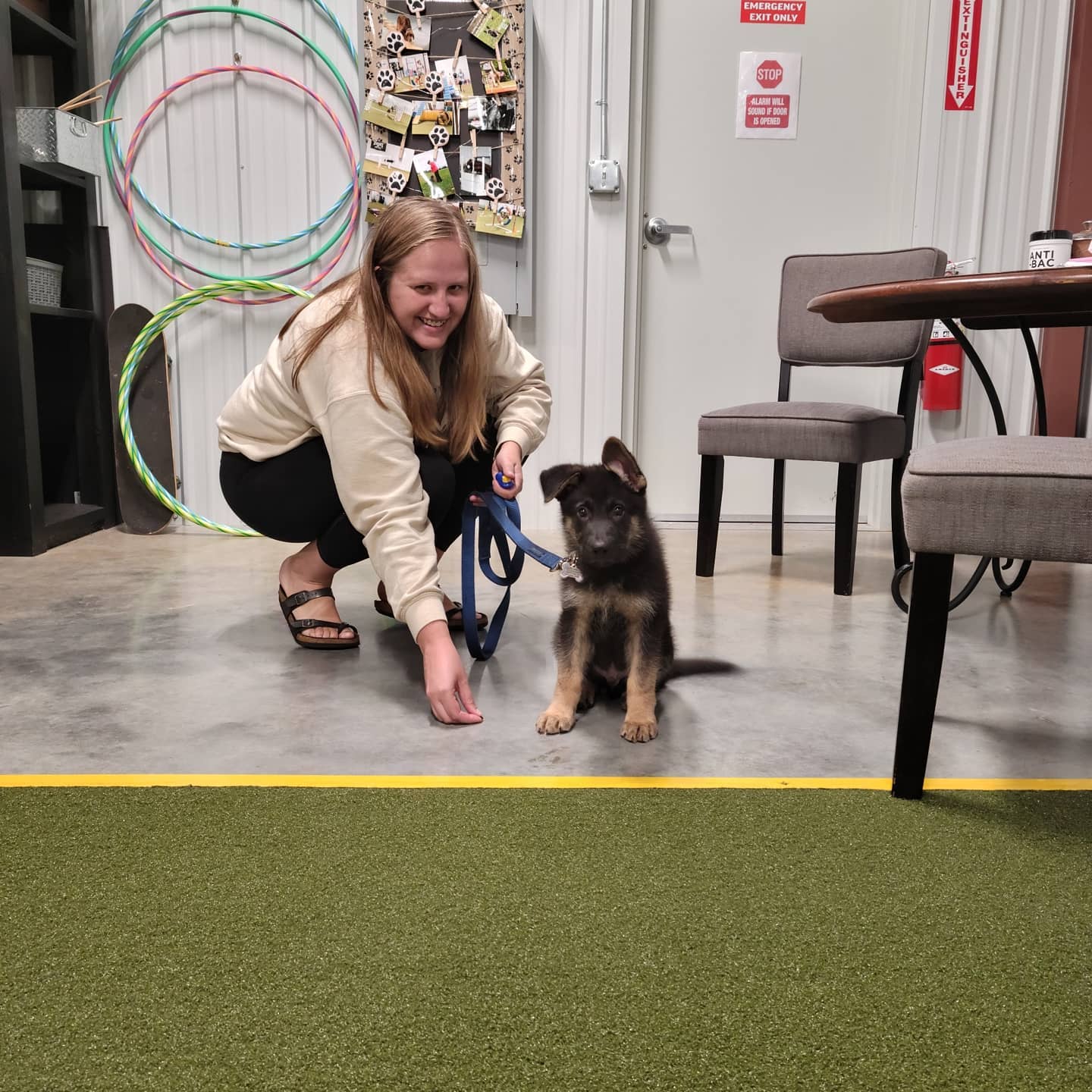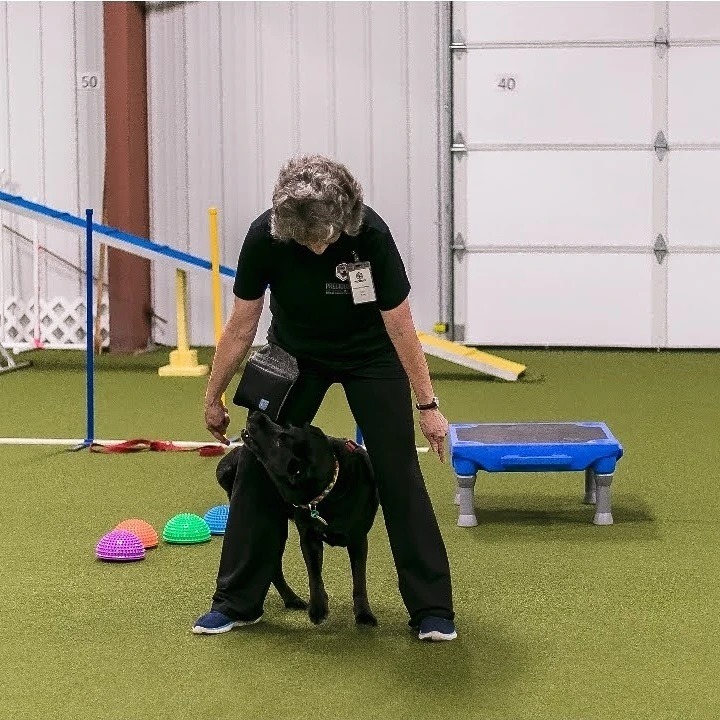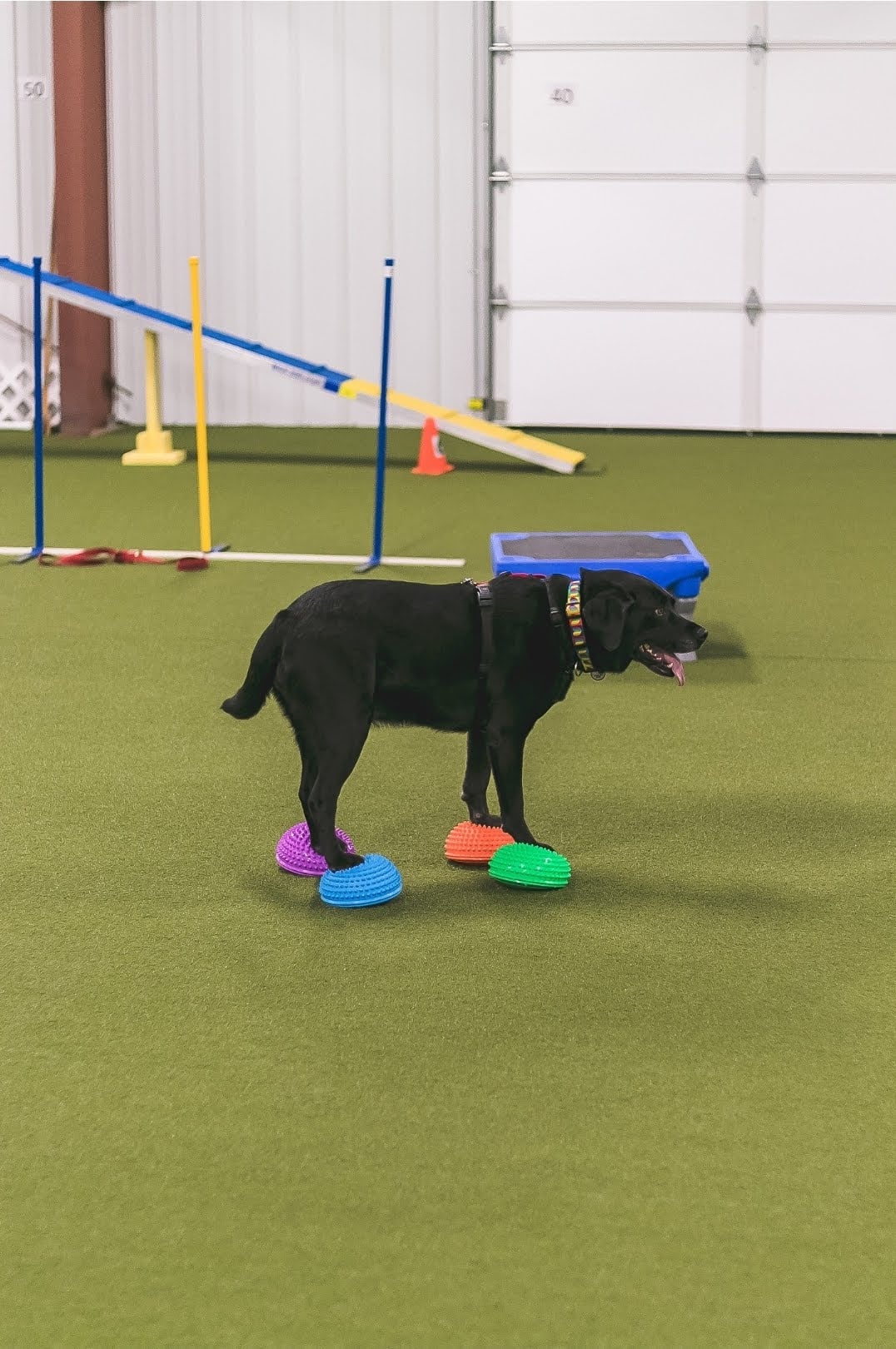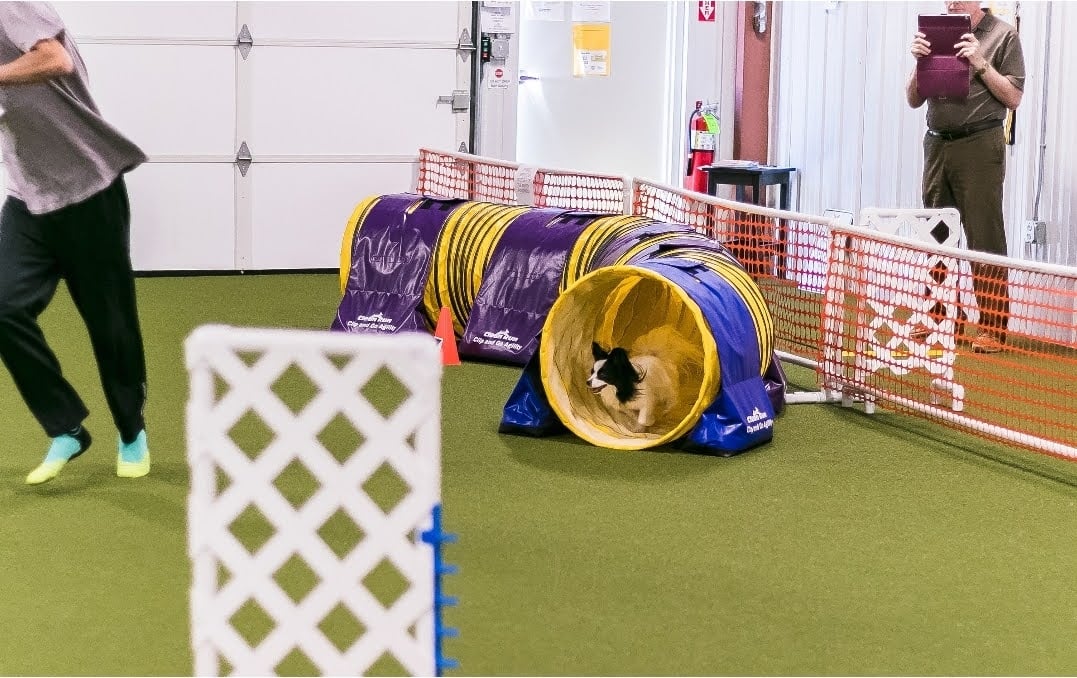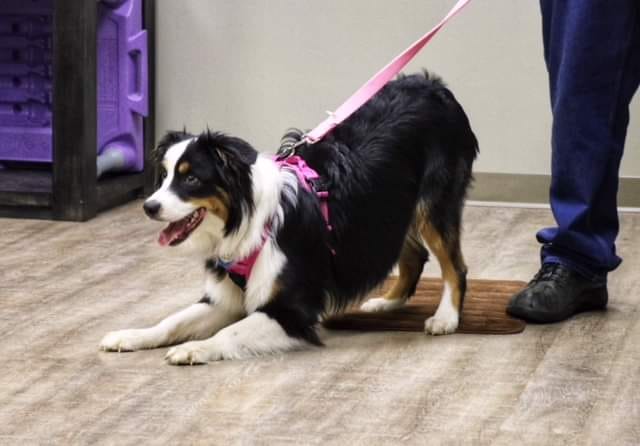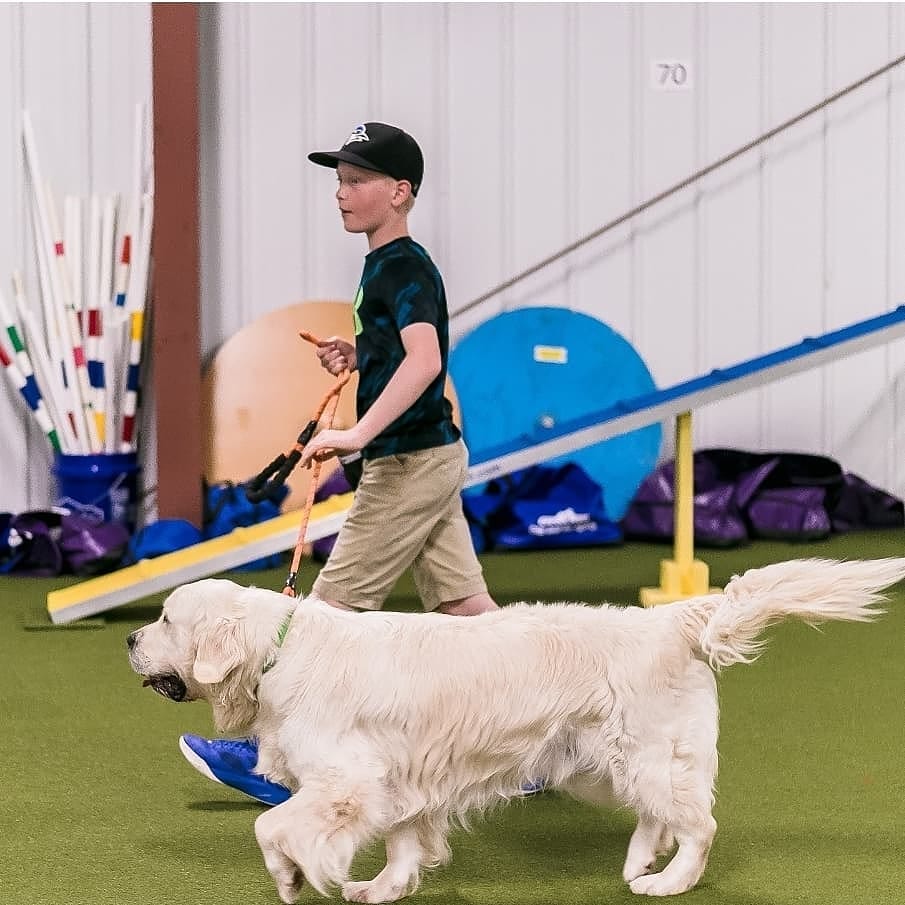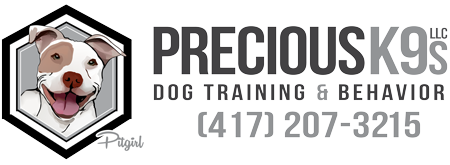Frequently Asked Dog Training and Behavior Questions
Check out this page for your answers to commonly asked questions about our professional dog training methods, programs and classes. If you don’t find what you are looking for, please contact us with your questions.
Doesn't show - What is the difference between a Service Dog, an Emotional Support Animal, at Therapy Dog?
A Service Dog is a highly trained dog that performs tasks to enhance the quality of life for an individual with a disability. They are protected by the Americans With Disabilities Act and the Fair Housing Act. Businesses are required to allow these dogs into their establishment as long as they are behaving appropriately. Hospital ICU’s and Churches may decline the entry of these dogs.
An Emotional Support Animal is a dog that helps a person feel better at home. They are protected by the Fair Housing Act. Business are not required to allow these dogs into their establishment.
Therapy Dogs are dogs specially trained by one handler and they are taken to places like retirement facilities, victim advocacy centers, and other places where some cheer may be needed for multiple people.
What is the difference between a Service Dog, an Emotional Support Animal, at Therapy Dog?
A Service Dog is a highly trained dog that performs tasks to enhance the quality of life for an individual with a disability. They are protected by the Americans With Disabilities Act and the Fair Housing Act. Businesses are required to allow these dogs into their establishment as long as they are behaving appropriately. Hospital ICU’s and Churches may decline the entry of these dogs.
An Emotional Support Animal is a dog that helps a person feel better at home. They are protected by the Fair Housing Act. Business are not required to allow these dogs into their establishment.
Therapy Dogs are dogs specially trained by one handler and they are taken to places like retirement facilities, victim advocacy centers, and other places where some cheer may be needed for multiple people.
Do you guys take the dog to train it?
Do you have boarding?
No. We have clients that are very happy with many of the boarding facilities in our area.
Do you have experience with aggression?
Yes. Carrie Galvan CBCC-KA specializes in behavioral issues such as anxiety and aggression. She has been working with, and helping owners with aggressive dogs for most of her adult life.
My dog bit someone. Can he be trained? What are my options?
For these situations we will sit down and have a consultation.This may be with or without the dog depending on the circumstances. If you would prefer to do this in your home, there will be an added cost.
Do you come to our house or do we come to you?
Our training sessions are primarily in our training center where all of our learning tools are. If you have an aggressive or scared dog that you are not comfortable taking anywhere, will come to your home for an added cost. This will be determined when you give us a call.
Is my dog to young to train?
We recommend you start training your dog as soon as you get it. Even baby puppies can learn! We will double check shot records to be sure they are ready to be in an area where other dogs have been.
Is my dog too old to train?
Probably not. You can teach an old dog new tricks! When you have your consultation we will troubleshoot and let you know how easy or if it’s possible to teach your dog whatever it is you have on your mind.
Do you allow all breeds of dogs into your training classes?
Yes! All breeds are treated equally at Precious K9s.
What do you charge for training?
One call can determine where we will begin in your training. If we decide to go the route of Private Coaching we will determine whether you need a quick assessment or if you need a full consultation. If you are willing to invest the time and the money into your dog’s future, we could be the k9 coaching company for you! You can also look at our class registration for descriptions and pricing.
Do you use positive training methods?
Yes we do! The psychology of behavior is the same across the board with all animals. Application, however, is different among different species. It is a proven fact that animals do learn better with positive training methods. If you are using punishment and the dog is not learning what you are trying to convey, it could be construed as abuse.
Do you ever want to tell your dog “no”? Of course! Focusing on positive behaviors can help dogs to understand when we do tell them that behavior is not acceptable. It is also more fun!
We do not allow pinch collars, choke chains, or e-collars in our group classes.
Is it bad to use a bark collar if my dog barks too much?
Bark collars are a very controversial piece of equipment. It is our stance, here at, Precious K9s, that we avoid them at costs. There are too many studies that possibly link them to lymphoma, hyperthyroidism, and other complications such as behavioral fallout. Barking has been bred into many of our breeds, so if you do not want a dog that barks much you should research your breeds, be prepared to do some training and management so they don’t bark due to lack of exercise and/or boredom, and get to know your new family member before committing. Breed standards do not always apply. Some dogs,even if they are a breed that tends to be quieter, can bark more due to generalized anxiety, separation anxiety, isolation anxiety, and impulse control issues.
Can I just use a shock collar to stop my dog from doing what I don't like?
We do not recommend shock collars (e-collars) here at Precious K9s. We recommend you teach your dog the right way to handle situations instead.
Learned helplessness is a term that describes an animal that does not want to get hurt, and may not understand fully why it is being hurt, therefore it shuts down to avoid any pain. This is not a good emotional state. Timing is everything in training…Do you have the skills and training to have the timing an e-collar could require?
Aggression is another form of behavioral fallout that can occur. Fight, flight, and freeze are natural instincts for all animals. If they are tired of freezing (learned helplessness) and can’t flee, what is left? Aggression is not always an animals fault. Humans can cause aggression when applying punishment incorrectly to animals. We, at Precious K9s, choose to not take the risk of causing aggression when coaching you to help your four-legged family member to live happier in our world.
Is it always a dog’s fault when it bites?
This too is a hot topic. Behaviorists and trainers around the world are teaching the public to better read dog body language. Dogs talk just like any other animal. We could prevent most bites if the general public could tell if their dog is uncomfortable. Wouldn’t it be nice if dogs could look to us for help out of an uncomfortable situation? ALL of our classes have dog body language in the curriculum.
“We decided to domesticate them. We should take the time to learn their language and to teach them ours”.- Carrie Galvan
